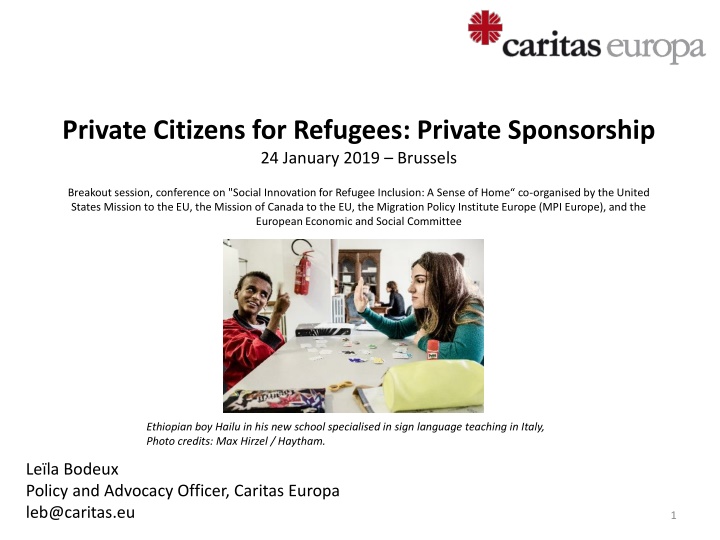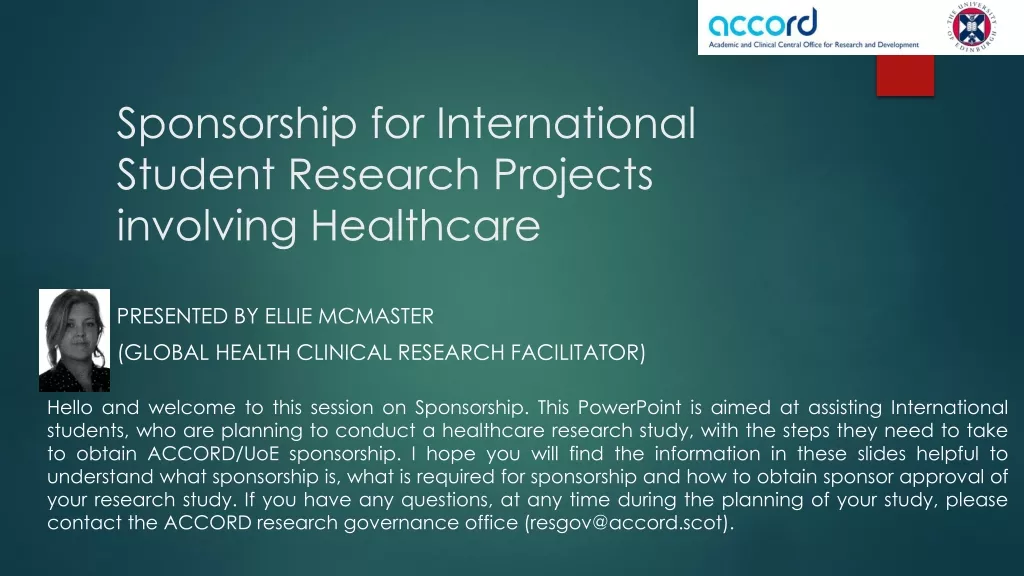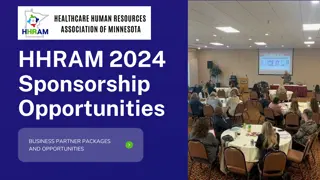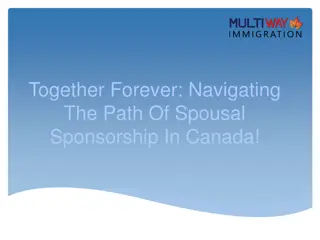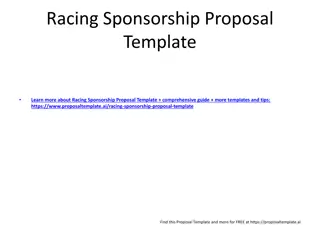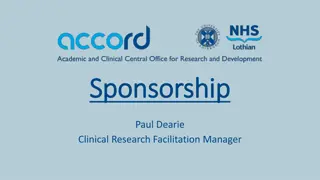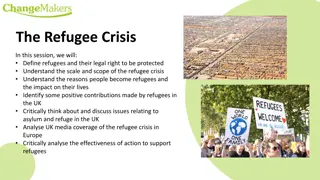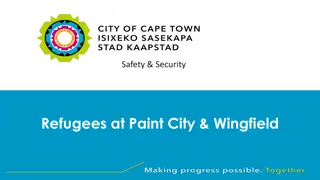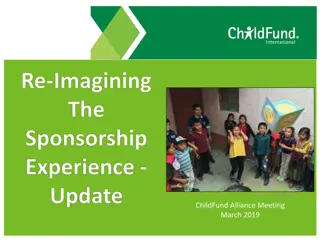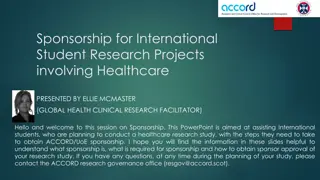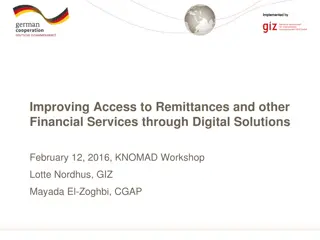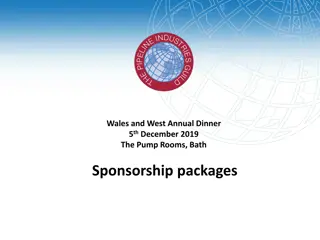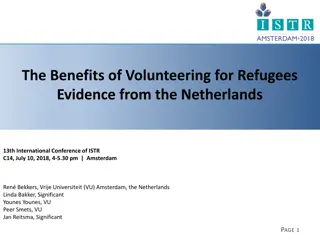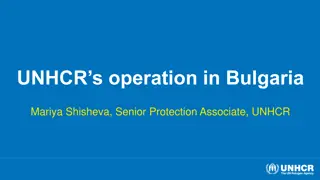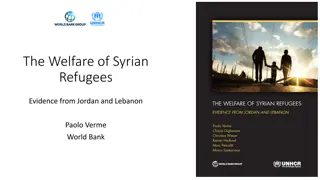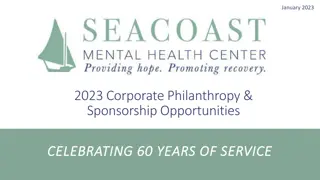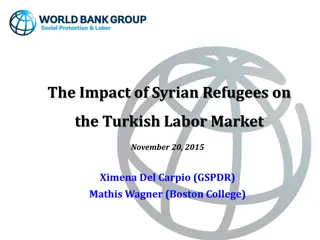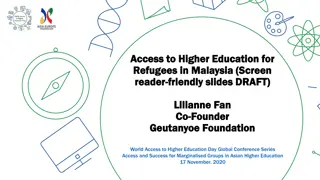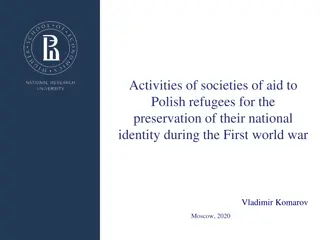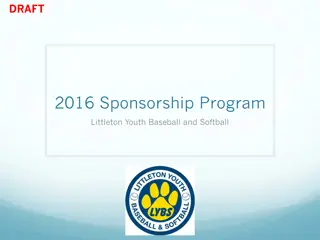Private Citizens for Refugees: Private Sponsorship Overview
Caritas Europa, in collaboration with ICMC Europe, is actively involved in private sponsorship initiatives across Europe, focusing on humanitarian corridors. These initiatives aim to provide support to refugees through a network of volunteers and professional organizations, enhancing integration and fostering positive community relationships.
Download Presentation

Please find below an Image/Link to download the presentation.
The content on the website is provided AS IS for your information and personal use only. It may not be sold, licensed, or shared on other websites without obtaining consent from the author.If you encounter any issues during the download, it is possible that the publisher has removed the file from their server.
You are allowed to download the files provided on this website for personal or commercial use, subject to the condition that they are used lawfully. All files are the property of their respective owners.
The content on the website is provided AS IS for your information and personal use only. It may not be sold, licensed, or shared on other websites without obtaining consent from the author.
E N D
Presentation Transcript
Private Citizens for Refugees: Private Sponsorship 24 January 2019 Brussels Breakout session, conference on "Social Innovation for Refugee Inclusion: A Sense of Home co-organised by the United States Mission to the EU, the Mission of Canada to the EU, the Migration Policy Institute Europe (MPI Europe), and the European Economic and Social Committee Ethiopian boy Hailu in his new school specialised in sign language teaching in Italy, Photo credits: Max Hirzel / Haytham. Le la Bodeux Policy and Advocacy Officer, Caritas Europa leb@caritas.eu 1
Caritas involvement in private sponsorship Caritas Europa represents 49 member organisations in 46 countries across the European continent. We are co-writing a publication together with the International Catholic Migration Commission (ICMC) Europe on private sponsorship in Europe, within the SHARE integration project co-financed by the European Union (AMIF). National and local Caritas are supporting the implementation of private sponsorships in four EU countries (Italy, France, Belgium, UK). Input presented draw from the practical experience of our members in the implementation of private sponsorships models based on the delivery of humanitarian visas, often referred to as humanitarian corridors (Italy, France, Belgium). 2
Overview of the humanitarian corridor model Memorandum of Understanding / declaration signed by leading organisation such as San Egidio/Caritas and ministry of interior/migration and foreign affairs. Italy: more than 2500 people from Lebanon (Syrians and some Iraqis and Palestinians that used to live in Syria), Ethiopia (Eritreans, South Sudanese, Somalians, Ethiopians), Turkey. France: 500 people from Lebanon (Syrians, Iraqis and Palestinians from Syria). Belgium: 150 people from Turkey and Lebanon (Syrian) Role and responsibilities: State provides a humanitarian visa and access to the state welfare benefits once protection status is granted. Volunteering group provides emotional, financial and administrative support during 1-2 years. Accommodation must be secured for at least one year. Identification/selection: local partner organisation on the ground based on vulnerability or family links criteria Support and preparation of volunteers and refugees by professional organisations (eg. Caritas, Federation of Protestant Mutual Aid in France) throughout the whole programme, from pre-departure to post-departure. 3
Motivation to participate in private sponsorships and added-value Desire to increase the number of protection places and facilitate the integration process Getting engaged in such a programme to support a family creates bonds among the members of the welcoming group and enables the inhabitants of the village to look positively at foreigners who came to France to flee dangerous events in their country of origin Strong signal to policy makers for more welcoming migration policies Changing the negative narrative around migration by fostering human encounter within local communities Positive impacts on the integration of refugees and on the communities themselves: Smoother integration: facilitated through individualised support and introduction to a social network Communities enriched : new dynamics and wider community involved (e.g. neighbours, friends, municipality) Volunteer welcoming a refugee family in France 4
Good practices Mediation, cultural orientation and management of expectation sessions and training for refugees and volunteers. Welcoming refugees does not aim at changing these families nor integrating them into a supposedly French culture, which we find difficult to define ourselves (happily enough, otherwise how boring it would be)! It aims at protecting these people from war and the risks of exile, and to support them as best as possible so that they can find their own path in France - Volunteer in France Attention to matching: Placing arriving refugees in appropriate communities to meet special needs Professional accompaniment of volunteers and coordination with other groups and services (local public services) while preserving the autonomy and independence of the groups Innovative housing practices (eg. in Italy through shared accommodation and communal residential housing) 5
Challenges Language barrier that hinders communication and social interaction, especially at the beginning. Finding a secure employment. Managing the expectation of volunteers and preserving the autonomy of refugees families. Difficulty to find appropriate accommodation. Providing high quality support and training for volunteers is resources intensive. Financial and practical support is needed. Risk of private sponsorships being politically instrumentalised in an increasing security approach towards migration. Risk to substitute the role and responsibilities of the state in the reception and integration of refugees. 6
